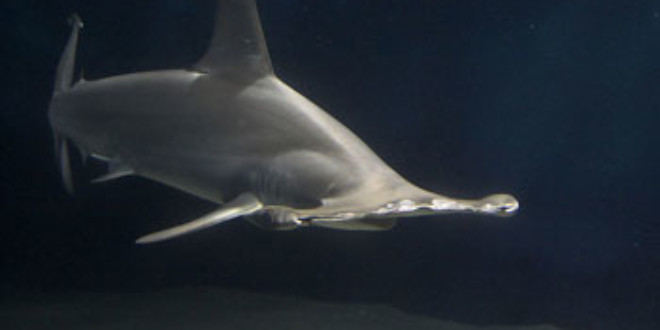Europe”s fisheries chief pledged on Thursday to tighten hunting controls for sharks, under threat from chronic overfishing and the practice of slicing high-value fins off one of the world”s most vulnerable predators. Scientists say around a third of the shark species found in European waters are now under threat because of overfishing. The EU barely regulates shark fishing, despite its role as a major importer and exporter of shark meat and products.
Later this year, EU countries will consider proposals to limit shark catches, tighten rules on fishing tackle and reduce the number of days on which trawlers can hunt for sharks in sensitive areas, EU Fisheries Commissioner Joe Borg said.
Borg also suggested a medium-term plan for banning discards, sharks scooped up as a by-catch with other species and thrown back into the sea, where they usually do not survive.
“Humans are now a far greater threat to sharks than they ever were to us,” he told a news conference, adding that EU ministers would discuss the plan in April but no legal changes could probably be expected before 2010.
“Sharks and their close cousins, skates and rays, are more vulnerable to overfishing than other fish because their reproductive cycles are so long. Once stocks have collapsed it may take many decades for them to recover,” he said.
Shark fertility rates are very low and they become sexually mature only late in life. The spurdog shark has a gestation period of two years.
SHARK FIN SOUP
Since the mid-1980s, shark numbers have come under increasing pressure from fishermen lured by soaring demand and high prices.
They are hunted mainly for their fins, to make shark fin soup, a traditional Asian dish: each fin can fetch up to 1,000 euros in Hong Kong, the world’s main market for fins.
Other shark parts like meat, skin, cartilage and liver oil are also valuable as they can be used to make cosmetic ingredients, medicinal supplements and jewellery.
In 2003, the EU banned ‘finning’, where fins are cut off the living shark and the low-value carcass dumped at sea, though environment groups say the prohibition is not strict enough.
Spain is by far the biggest player in the shark fin market and a large-scale exporter. EU catches of live sharks are also dominated by Spain, followed by France, Portugal and Britain.
While insisting the 2003 ban had not failed, Borg said it needed to be tightened and its numerous exemptions scrutinised.
(From reuters.com, Brussels, By Jeremy Smith)
 Ocean Sentry
Ocean Sentry




